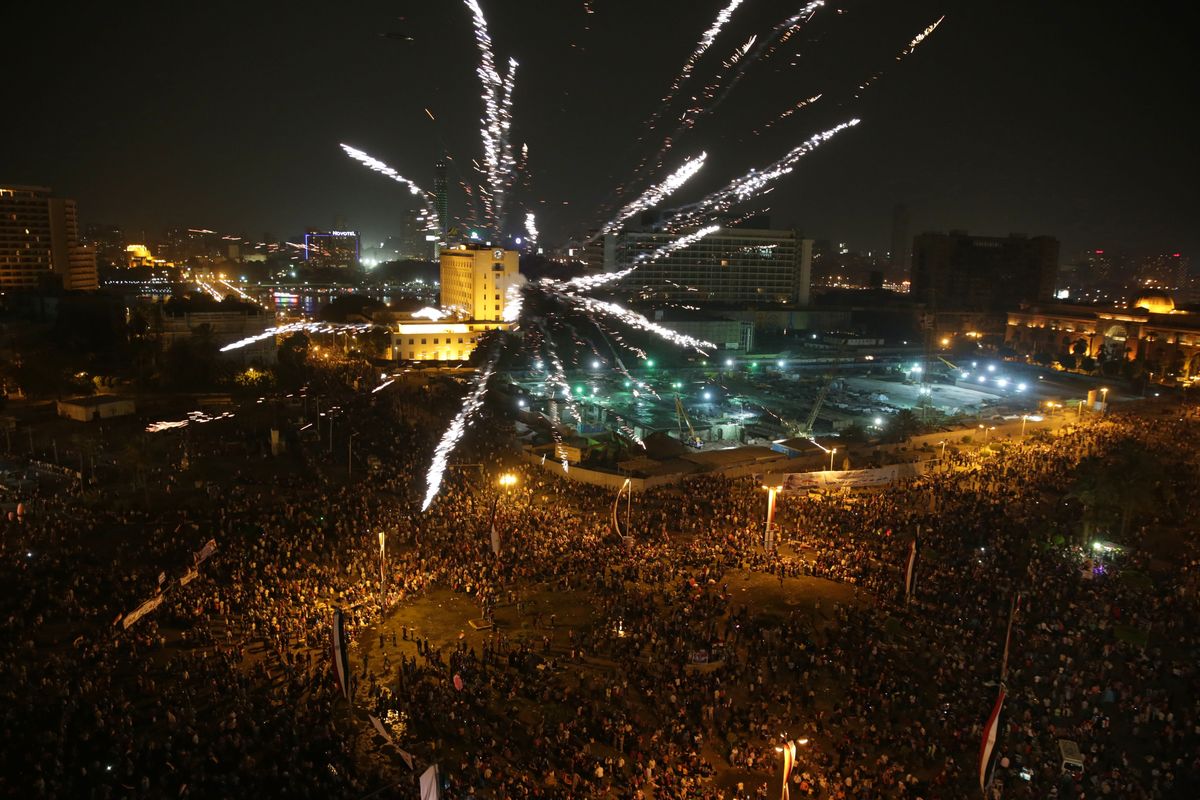El-Sissi takes office in Egypt

CAIRO – To the volley of a 21-gun salute, Egypt’s new president, Abdel Fattah el-Sissi, was inaugurated Sunday in a day of triumphal ceremonies, formally assuming leadership of a nation plagued by political turmoil and economic woes.
El-Sissi’s swearing-in took place at the Supreme Constitutional Court, the same venue as for the inauguration of Mohammed Morsi, the elected president he overthrew nearly a year ago following huge protests demanding the Islamist’s removal. After taking the oath, el-Sissi received dignitaries, diplomats and monarchs at the presidential palace.
“The time has come to build a more stable future that writes a new reality for this country – a reality that makes hard work the platform of our lives,” said the former field marshal, who left the army to run for president as a civilian. He urged Egyptians to reject chaos in favor of order, and said freedom must be exercised with “responsibility.”
Authorities decreed the inauguration day a national holiday, and the former defense chief’s ascension was marked by tight security. Police and soldiers were deployed throughout the capital, and the former army chief reviewed an honor guard as military helicopters thudded overhead.
Supporters gathered to celebrate in Cairo’s Tahrir Square, the epicenter of the 2011 revolution that toppled longtime autocrat Hosni Mubarak, another military commander who ascended to the presidency. In the square, there was a carnival atmosphere, with street vendors and flag-waving children. But the mood was funereal among those alarmed by a sharp curtailment of basic rights in the past 11 months.
The 59-year-old el-Sissi, who had served as the country’s de facto leader since Morsi was removed by the army last July, was elected president last month in a landslide vote. International monitors said the balloting itself was conducted correctly, but criticized the atmosphere of repression surrounding it.
Morsi and thousands of his followers in the now-banned Muslim Brotherhood are in jail, and the deposed president could face the death penalty if convicted on charges that include espionage and murder. More than 1,400 Morsi supporters have died in clashes with security forces in the past year.
Secular opponents of the interim government have been targeted by the authorities as well. Some of the leading figures in the 2011 uprising are behind bars, and their supporters say Egypt has reverted to the police-state style of governance that characterized the Mubarak era.
Mubarak himself is imprisoned in a military hospital nearly adjacent to the court complex where the swearing-in took place.